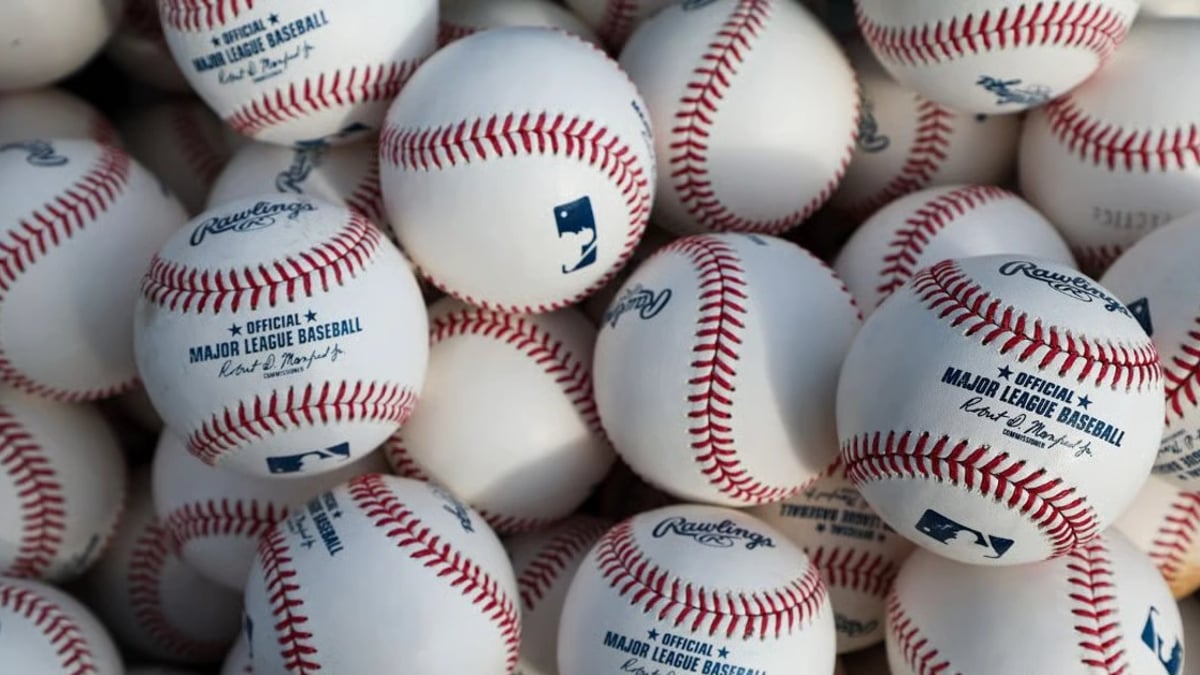How to Bet on MLB: MLB Betting Strategy Guide

- #ad. 18+. Gamble Responsibly. Gambleaware.org. Must be 21+ to participate. Gambling problem? Call 1-800-GAMBLER (CO, IL, IA, KY, KS, LA, MD, NC, NJ, OH, PA, TN, VA). Call 1-800-NEXT-STEP (AZ). Call 1-800-9-WITH-IT (IN). Deposit required. Paid in Bonus Bets. Bets wager excluded from returns. New Customer only. T&Cs, time limits and exclusions apply. Code is for marketing/tracking purposes.
Baseball, often called the Great American Pastime, holds a special place in American sports betting. It's a reliable and constant sport, with more games played per season than any other.
This guide will delve into what makes baseball betting unique, why it's popular, and how you can master the ins and outs of hardball handicapping.
Note: MLB odds may appear in fractional (e.g., 50/1), decimal (51.00), or American (+5000) format depending on your region. Most betting sites allow users to choose their preferred format.
Popular MLB Betting Markets
Whether you're a long-time baseball fan or new to the sport, understanding the basic types of baseball bets is crucial, as spectating and betting involve different considerations.
Here’s a rundown of the most popular and widely available baseball betting markets:
Run Line
Run lines are baseball's equivalent of point spreads in sports like football or basketball, but they are always fixed at -1.5 for the favorite and +1.5 for the underdog. This is because most baseball games are decided by three runs or fewer.
Run lines offer breathing room when backing an underdog or a better payout when betting on a favorite.
Over/Under Runs
Also known as "totals," these wagers are on whether the combined total runs scored by both teams in a game will be higher or lower than a specific line set by the sportsbook. Unlike run lines, over/under lines are highly variable based on expected offensive output.
Lines can be set at an even number (allowing for a "push" if the total matches the line) or a half-run number (guaranteeing a winner and a loser). Lines typically range between 5 and 10 runs.
The total runs market is highly statistical and offers considerable profit potential. Compare batting and earned run averages to identify teams in the runs over/under market.
A key to unlocking value in the runs over/under market is identifying teams with a strong defensive record and a weak scoring record, or vice versa. This helps spot games that are likely exceptionally high-scoring or low-scoring. Once you've identified potential teams, compare their key statistics with those of their opponents.
Prop Bets
Given baseball's statistic-centric nature, there's a vast array of prop betting options. You can bet on individual pitchers or hitters to reach (or not reach) milestones like strikeouts, hits, earned runs, home runs, or runs scored. Team-wise, you can bet on total runs, home runs hit, or which team scores first. Game props include the popular NRFI/YRFI (No Run First Inning/Yes Run First Inning), whether the home team bats in the bottom of the ninth, or if the game will go to extra innings.
Other Baseball Bet Types
- Moneyline: This is the simplest bet, where you predict the winner of a game. If your team wins, your bet wins; your wager is lost if they lose.
- Parlays: Parlays combine multiple predicted results, known as "legs," into a single bet for higher payouts. All legs must hit for the parlay bet to cash.
- Live Bets: Live betting options are available for almost all the aforementioned betting markets, with the key distinction being that these bets are placed while the game is actively in progress.
- Futures: You can place futures bets on teams to win their division, league, or the World Series.
MLB Betting Strategies
Find Value By Odds Shopping
Value betting is a broad concept focused on finding an edge wherever possible, regardless of its size. Odd shopping includes comparing betting lines across different sportsbooks for the same markets to find the best prices.
Back Underdogs
Identify underdogs you believe have a better chance of winning than their odds suggest. Underdogs coming into a game after a win often perform better, thanks to increased confidence, team unity, or an amplified "fear factor" for the opponent.
Conversely, when an underdog comes into a game after being shut out, their next opponent often becomes an even greater favorite with shorter odds. You require proportionally fewer wins to generate a profit from backing such underdogs.
While underdogs regularly win and can be worth backing, recklessly betting on large-value underdogs can quickly deplete your bankroll, so making smart, well-informed MLB picks with stakes that align with your budget is vital.
Monitor Weather Reports
Amidst the wealth of data, it’s easy to overlook basic variables like weather. Temperature and the chance of rain can significantly affect baseball games. For example, if there’s a high chance of a lengthy delay that could remove starting pitchers from the game, you might want to avoid betting on overs.
Watch Early Lines Movement
Understanding "closing line value" is key, which refers to the difference between the pre-game odds for a bet and where those odds closed. You should stay updated to achieve a positive closing line value. Placing a bet before a sportsbook has had a chance to react to such changes can provide excellent value for your wager. Baseball betting odds will continuously change and fluctuate from when they are posted until the first pitch.
Compare Runs For & Against
A reliable shorthand exists for those seeking a quick, simple betting system without excessive statistical analysis. Most MLB standings display a team's runs scored and runs against. You can use these figures to calculate the runs per game for and against each team. When two teams play, average their averages to get a reasonable estimate of the final score.
This system can be easily refined for greater accuracy by incorporating position in the standings, such as awarding an extra point to the higher-ranked team for every five places separating them. These simple adjustments can lead to regular returns in this surprisingly predictable sport.
Don’t Overvalue Favorites
Overvaluing a favorite is a frequent error because the talent and success gap between favorites and underdogs can be wider in other sports. Remember that even a “top-performing” team might only win 6 out of 10 games in baseball, and a “weak” team can still win 4 out of 10.
Stats to Consider When Betting on the MLB
Since the advent of the "Moneyball" trend, statistics have been central to the sport.
For gamblers, these numbers become powerful tools for predicting performance. In the last decade, baseball has seen a statistical revolution with sabermetrics and advanced statistical analysis becoming prevalent. You can access anything from a hitter's average exit velocity to a pitcher's expected ERA.
Here are some of the top statistics to consider when betting on baseball:
Win Percentages
Win percentages underscore the difficulty of picking a winner in baseball. Most teams typically win 46% to 57% of their games, highlighting the sport's unpredictability.
ERA
Earned Run Average is the average number of runs a team's pitchers allow per nine innings. ERA is key to “runs scored” and “run line” markets, where identifying a team's defensive strength can help predict total runs scored and winning margins.
Batting Average
This is the average number of hits a team's batters record, and it helps estimate a game's total score. But, high batting averages don’t necessarily translate to wins. You should check scores to ensure these hits translate into runs.
Umpire Trends
Look into online data regarding umpire tendencies in calling balls and strikes. A larger strike zone favors pitchers and leads to lower-scoring games, while a tighter strike zone can result in more walks, hits, runs, and overall offensive output.
Data suggests that umpire tendencies can impact run-scoring likelihood, making this knowledge especially helpful for over/under bettors.
Alternatives to MLB Betting
With 30 teams playing 162 games across the United States and Canada, Major League Baseball is the world's largest and most popular baseball league. However, there are other baseball leagues to bet on.
Many sportsbooks also offer markets on international leagues, such as Japan's Nippon Professional Baseball and the Korea Baseball Organization. However, these leagues typically have more limited betting markets than MLB.
There are over 300 NCAA Division I baseball teams; you can generally bet on most games. The postseason is a double-elimination tournament known as the College World Series.
Betting on college baseball tends to be more volatile due to less available data, less consistent field conditions, and potentially higher variability in player skill levels. Check your region’s specific rules about betting on college sports.
Final Thoughts on MLB Betting
Baseball’s richness provides entertaining betting markets, and the long baseball season offers more games to bet on than hockey, basketball, football, or soccer. The sport’s emphasis on statistics means there is a wealth of data to collect to help inform your bets.
If you can place bets legally, it is essential to gamble responsibly. This means establishing a predefined bankroll, avoiding compulsive wagering, and limiting the time and mental energy you dedicate to recreational betting.
















